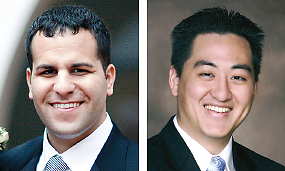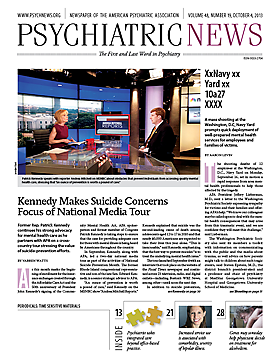At the World Psychiatric Association Thematic Conference on Intersectional Collaboration and 4th European Congress of the International Neuropsychiatric Association last December, Dr. Angelos Halaris, a professor of psychiatry at Loyola University School of Medicine in Chicago, proposed a new subspecialty called “psychocardiology.”
While we recognize potential systemic limitations to creating such a specialty at this time, we applaud Dr. Halaris for proposing such a bold idea. As trainees in psychiatry, we appreciate that the two fields intersect in a formidable way, and the importance of collaboration between the two specialties cannot be overemphasized.
Research literature has shown that patients who suffer from mental illness are at higher risk for developing cardiovascular disease (CVD). Studies have also shown that depressive symptoms may augment inflammatory markers (IL-6 and CRP), which may play a role in the progression of coronary artery disease.
While many of the risk factors for CVD—such as nicotine dependence, substance use disorders, depression, inactivity, poor primary medical care, obesity, diabetes, hyperlipidemia, and hypertension—are modifiable, engaging people with one or more of these factors in the most therapeutic way can be extremely challenging.
To make matters worse, many of the atypical neuroleptic medications that our patients rely on can lead to significant metabolic disturbances, QT prolongation, and torsades de pointes.
In addition, research has found that many individuals suffering from cardiovascular disease have increased levels of depression and anxiety symptoms. While the jury is still out regarding the causal pathways, the great need for more cardiac screening and preventative care for individuals living with mental illness is clear.
Engaging these vulnerable patients in conversations about health, the importance of medication adherence, and treatment planning is paramount. It is not uncommon for cardiologists to be the first clinicians to elicit symptoms of depression, anxiety, and other psychiatric symptoms from patients. These same patients may be hesitant to seek consultation from a psychiatrist for a more in-depth workup. Alternatively, psychiatric patients often have difficulty attending cardiology appointments and adhering to cardiac recommendations in a meaningful way.
Psychiatrists and cardiologists are in the position to develop relationships that are mutually beneficial resulting in improved patient outcomes. Specifically, psychiatrists can take the time to reach out to cardiologists and offer ways to quickly screen, assess, and facilitate mental health care with their patients in the most optimal way. Psychiatrists can also share the theory and basic techniques of motivational interviewing with cardiologists. This knowledge has the potential to increase patient adherence to treatment plans and facilitate their movement toward positive changes. APA and the American Heart Association have already published joint guidelines on management of depression in heart disease (
http://m.circ.ahajournals.org/content/118/17/1768.short).
Since trainees often work in the general hospital and may be called to consult on patients, residency is a prime time for collaborative care and interdisciplinary education. We propose having a dialogue or a luncheon between the two special ties every two months during which challenging cases can be discussed and knowledge exchanged. This can also be a good time to support each other emotionally and intellectually, as proposals for research projects may arise. Advocacy work initiated by the two specialties can have far-reaching effects on patients and their families. Opportunities to streamline care may come to fruition sooner if specialists work together more closely.
A wonderful Web resource that clinicians can recommend to patients who suffer from a mental illness and are at risk for cardiovascular problems is www.nami.org/heartsandminds. The NAMI Hearts & Minds program is an online, interactive educational initiative promoting the idea of wellness in both mind and body. ■

